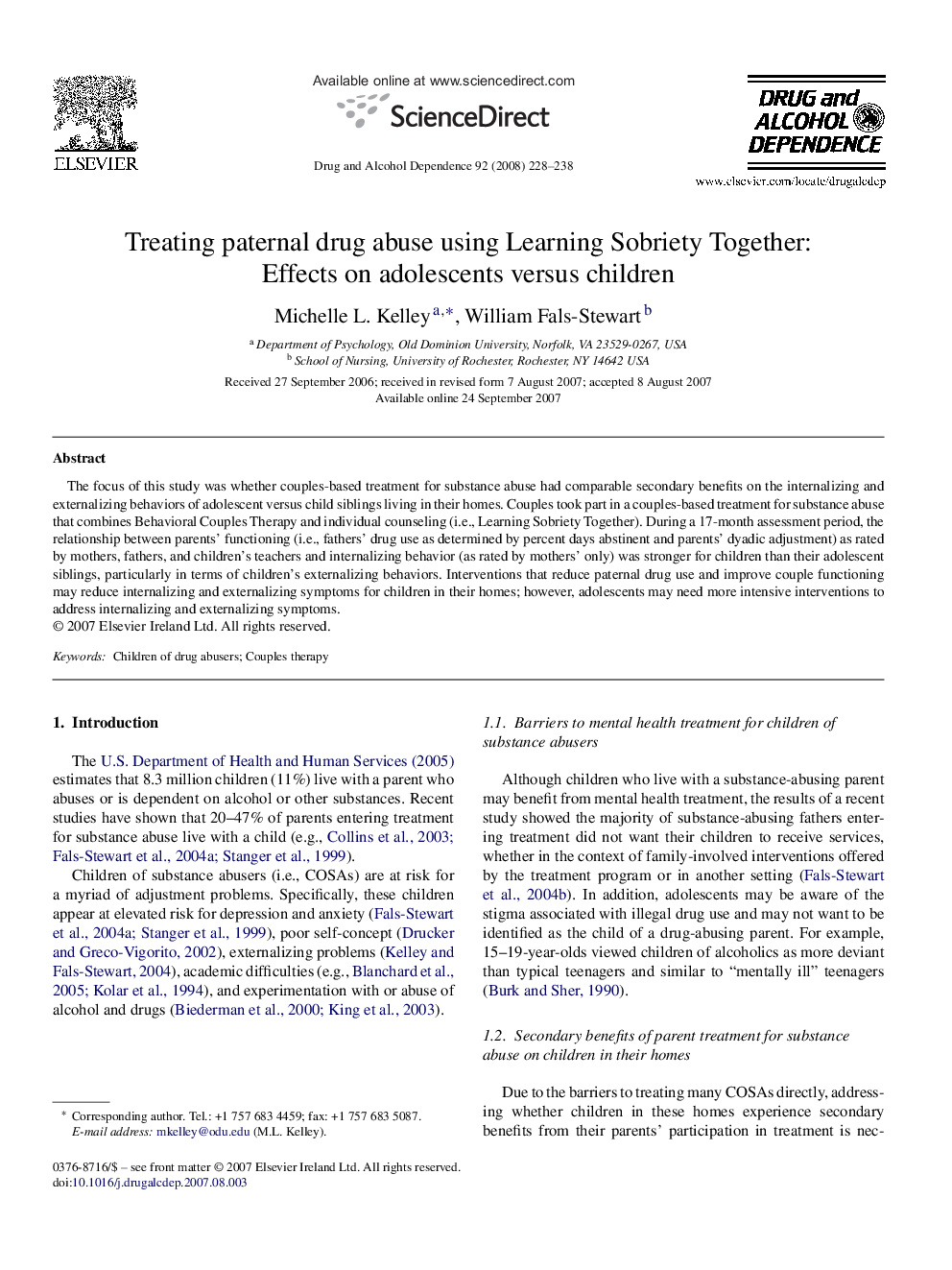| Article ID | Journal | Published Year | Pages | File Type |
|---|---|---|---|---|
| 1071668 | Drug and Alcohol Dependence | 2008 | 11 Pages |
The focus of this study was whether couples-based treatment for substance abuse had comparable secondary benefits on the internalizing and externalizing behaviors of adolescent versus child siblings living in their homes. Couples took part in a couples-based treatment for substance abuse that combines Behavioral Couples Therapy and individual counseling (i.e., Learning Sobriety Together). During a 17-month assessment period, the relationship between parents’ functioning (i.e., fathers’ drug use as determined by percent days abstinent and parents’ dyadic adjustment) as rated by mothers, fathers, and children's teachers and internalizing behavior (as rated by mothers’ only) was stronger for children than their adolescent siblings, particularly in terms of children's externalizing behaviors. Interventions that reduce paternal drug use and improve couple functioning may reduce internalizing and externalizing symptoms for children in their homes; however, adolescents may need more intensive interventions to address internalizing and externalizing symptoms.
